Rachel Kostanian, the famed one-woman bastion holding off the state-sponsored hordes of ultranationalist Holocaust revisionism, continues to lead The Green House, as the Holocaust section of Lithuania’s state Jewish museum is known. It is a small wooden structure atop a hall hidden by a long driveway, invisible from the street, in contrast to the other sections of the Jewish museum. In contrast to all the others, The Green House’s exhibits and texts narrate the simple truth about June 1941 and the role of the “white armbander” Nazi militias in initiating the genocide of Lithuanian Jewry, as well as the later and massive collaboration with and participation in the killing throughout the genocide of Lithuanian Jewry. Like others who stand up, and especially those in prestigious academic or cultural positions in Lithuania, she is being subjected to extensive official harassment, degradation, demotion and a campaign of psychological warfare including defamation (see for example, Esther Goldberg Gilbert’s first and second articles in 2010).
It is against this backdrop that Ms. Kostanian’s prominent inclusion, at four separate points, in Professor Danny Ben-Moshe’s new documentary, Rewriting History, acquires special significance here in Vilnius.
The film is available online. Rachel Kostanian’s four appearances are at the following time c odes:
11:16 to 12:12
17:47 to 19:47
21:10 to 21:34
31:20 to 33:16
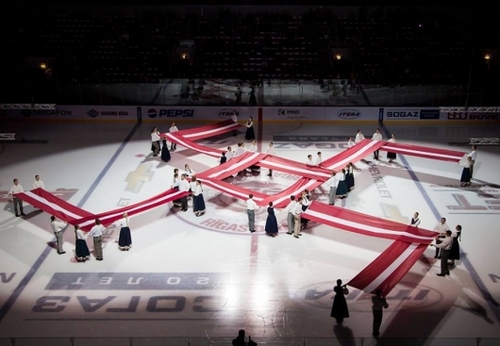
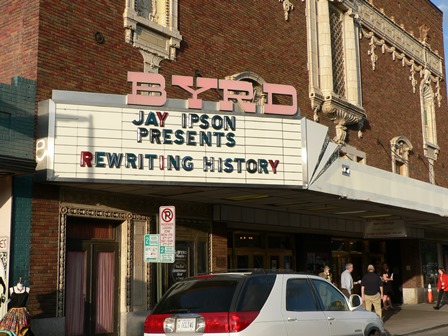
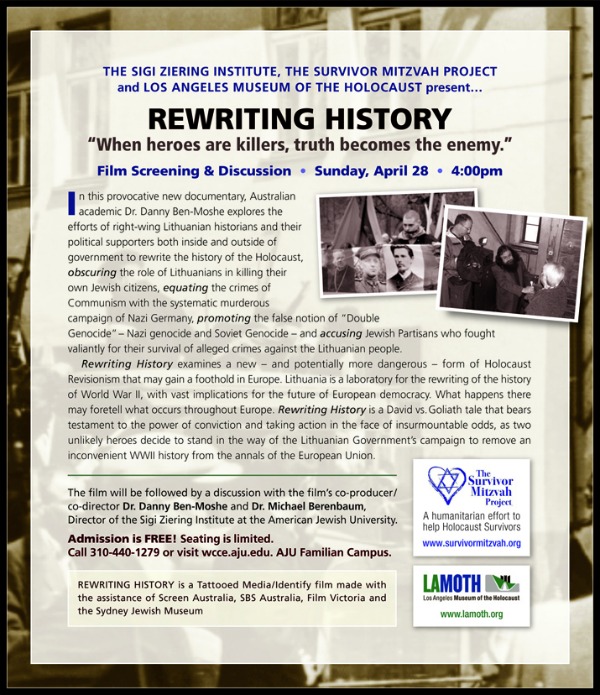
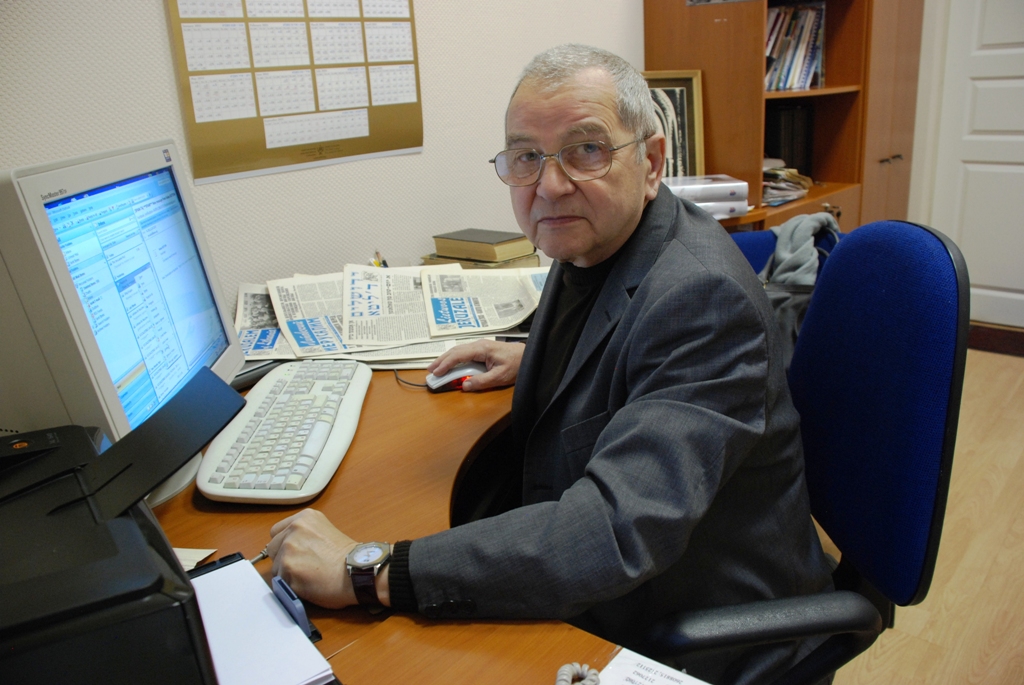 Milan Chersonski (Chersonskij), longtime editor (1999-2011) of Jerusalem of Lithuania, quadrilingual (English-Lithuanian-Russian-Yiddish) newspaper of the Jewish Community of Lithuania, was previously (1979-1999) director of the Yiddish Folk Theater of Lithuania, which in Soviet times was the USSR’s only Yiddish amateur theater company. The views he expresses in DefendingHistory are his own. This is an authorized translation from the
Milan Chersonski (Chersonskij), longtime editor (1999-2011) of Jerusalem of Lithuania, quadrilingual (English-Lithuanian-Russian-Yiddish) newspaper of the Jewish Community of Lithuania, was previously (1979-1999) director of the Yiddish Folk Theater of Lithuania, which in Soviet times was the USSR’s only Yiddish amateur theater company. The views he expresses in DefendingHistory are his own. This is an authorized translation from the 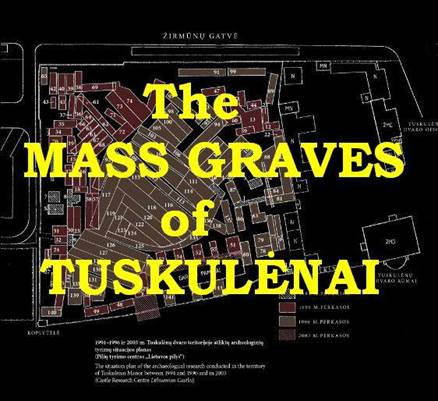
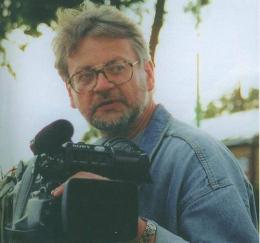
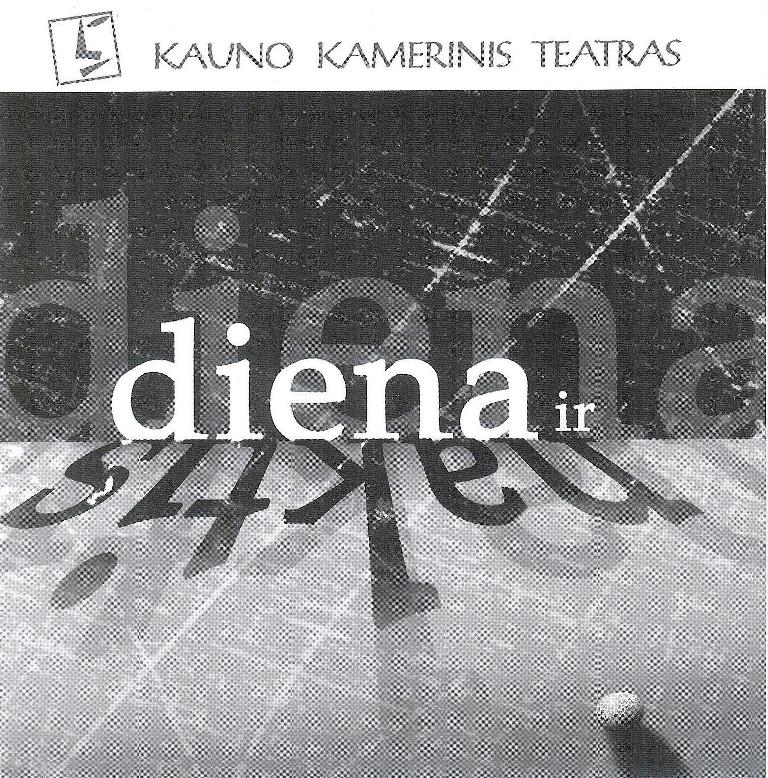
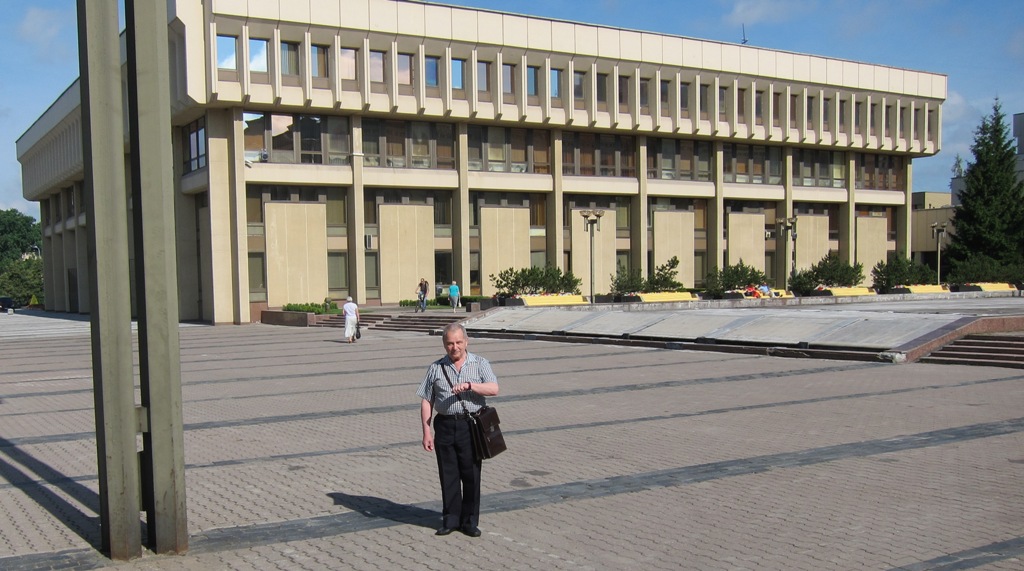
 Rachel Kostanian, the courageous director, valiantly keeps alive one of the rare local bastions of public integrity on the Holocaust in Lithuania, having constantly to fend off obstacles. Read Esther Goldberg’s portrait in the special Jewish New Year’s supplement on great Jewish women of the ages in the
Rachel Kostanian, the courageous director, valiantly keeps alive one of the rare local bastions of public integrity on the Holocaust in Lithuania, having constantly to fend off obstacles. Read Esther Goldberg’s portrait in the special Jewish New Year’s supplement on great Jewish women of the ages in the